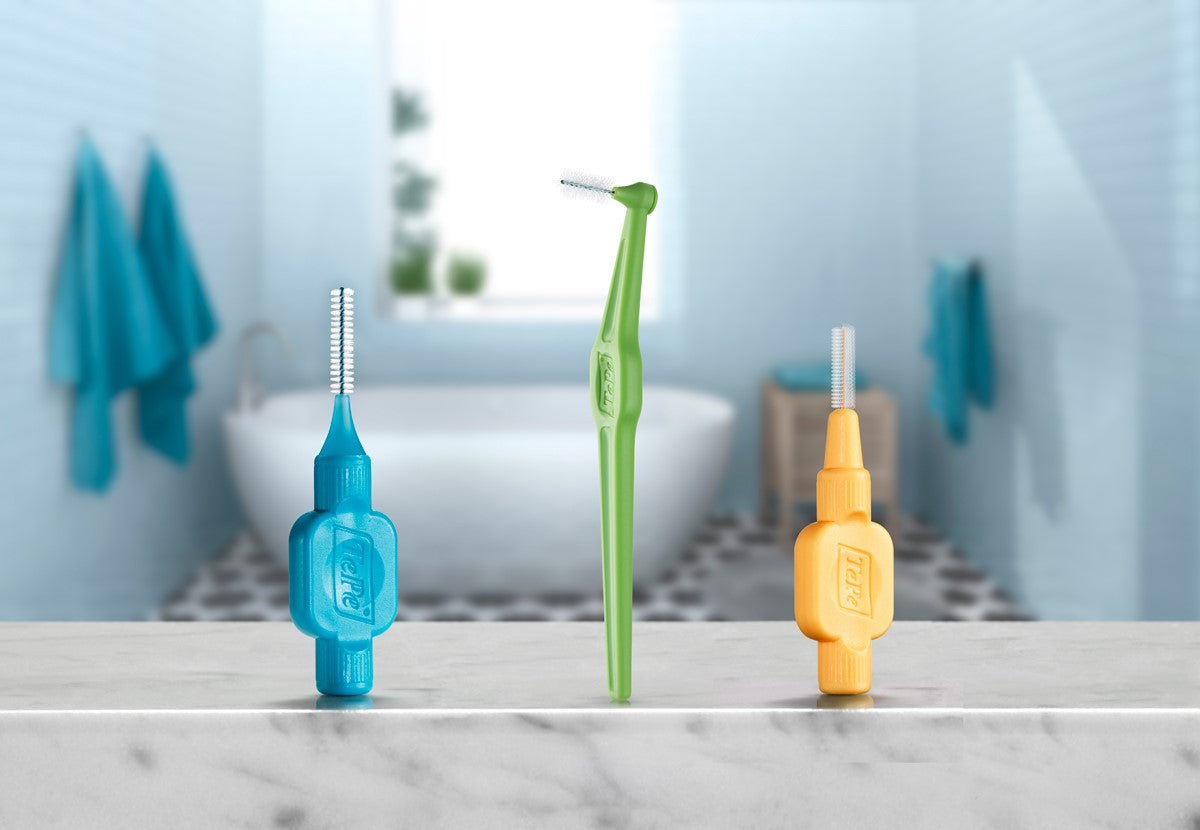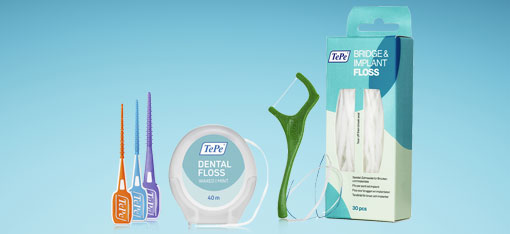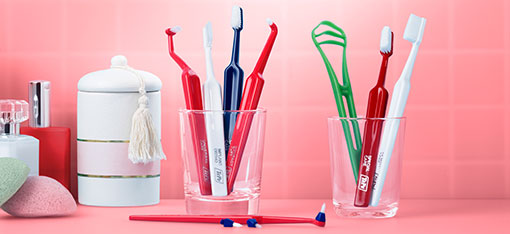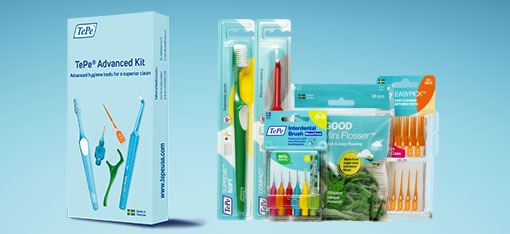Dental Implant Care
Replace missing teeth with dental implants
Dental implants allow for a replacement of a single missing tooth or several missing teeth. The dental implant replaces the natural tooth root.

A dental implant consists of a screw that is placed in the jawbone and a crown, which looks like a natural tooth, is anchored to the implant. Dental implants are one of the most viable methods of teeth replacement.
If you think you may be a good candidate for a dental implant, always discuss this with your dental professional. There are specific health conditions and risk factors, like diabetes or using tobacco, that could influence the decision for implant placement.
Types of Dental Implants
There are different types of dental implants, depending on how many teeth are missing. If you are missing one tooth, you may need a single implant, whereas if you’re missing several teeth you may need an implant supported bridge or an implant retained over-denture.

Implant-Supported Bridge
Several teeth are replaced with a bridge, anchored to implants.
Single Implant
A crown anchored to an implant.
Overdenture
A removable denture anchored to the implants.
Placing Dental Implants
Generally, there are three phases to getting an implant, although it can differ depending on your specific situation.
-
First, the dental professional surgically places the implant into the jawbone.

- Next, the bone grows around the implant to hold it in place. Some people may need to wait until the implant is completely integrated before replacement teeth can be attached to the implant, which may take several months. Whereas others may have the replacement teeth placed all in one visit when the implant is surgically placed.
- Lastly, the replacement or artificial tooth is attached to the implant. This new tooth is called a crown, which is designed to blend in with your natural teeth.
Why is oral health essential around dental implants?
Bacterial plaque is a sticky film that constantly forms on your teeth and implants. If you do not clean your implant(s) properly, the plaque builds up and can cause gum inflammation called peri-implant mucositis. Your gums may look red, swollen, feel sensitive or bleed easily. This can be reversed, but if plaque is not removed, the bone around the implant will start to break down.
Once there is both inflammation and loss of bone around implants it is called peri-implantitis. The implant gradually loses its attachment. This disease often goes unnoticed, so it is important to visit your dental professional regularly to discover problems as early as possible to increase the chance of successful treatment.
Other risk factors increasing potential inflammation and bone loss around an implant include poor oral hygiene, previous or active gum disease, some systemic diseases, smoking, and not attending your dental recall visits. The development of inflammation around implants:

How to care for your dental implants
The gums and bone around an implant are far more sensitive to plaque and the build-up of bacteria, than around a natural tooth. The implant attaches directly to the bone, so natural defense mechanisms are limited if not cleaned properly. Maintaining a high standard of plaque control is essential to help you keep your implants for life.
Pay extra attention to:
- Between the implant and adjacent teeth. This is often an area where food may get trapped and plaque can hide undisrupted.
- Where the gums and implant meet. Sometimes this can be hard to see where the implant is located, so remember to ask your dental professional exactly where your implant is placed.
TePe Products Designed for Implant Care
TePe offers a range of products that can make removing plaque from around your implant, your teeth, and your prothesis easier.

- TePe® Original Interdental Brush: Suitable for cleaning around and between implants.


- Tepe EasyPick™: Comfortable and flexible for efficient cleaning around and between implants.

- TePe Compact Tuft™: The rounded tuft cleans implants and attachments for over-dentures.

- TePe Universal Care™: The angled neck facilitates cleaning from the tongue side, and the flat design of the bristles allow access to the neck of the implant.


- TePe® Implant Orthodontic Brush: The extra slim brush head enables cleaning in narrow areas and access to the neck of the implant.

- TePe Denture Care™: Long, strong bristles are efficient for cleaning dentures.

- TePe® Bridge and Implant Floss: Efficient cleaning between teeth and around crowns/bridges with two stiff ends and a spongy middle portion.

- TePe® Implant Care Kit: Effectively clean around implants with brushes designed to fit narrow areas, between the teeth, and used for on-the-go cleaning. You will get TePe® Bridge and Implant Floss, TePe® Original Interdental Brushes, TePe EasyPick™, TePe® Implant Orthodontic Brush, and TePe Universal Care™ Brush.












Leave a comment